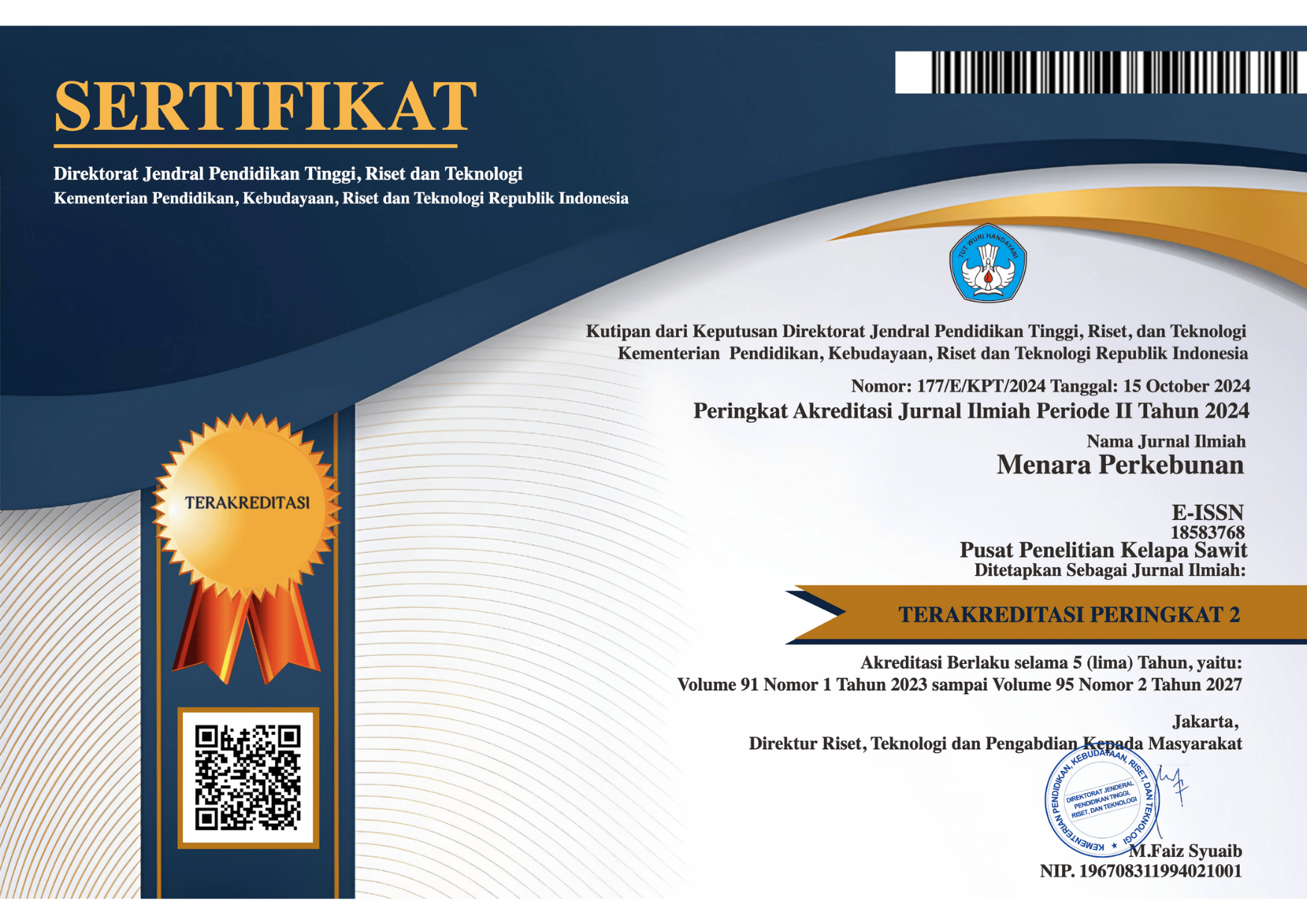Molecular markers and their application for DNA fingerprinting and genetic diversity studies in Coffea species Marka molekuler dan penerapannya untuk studi sidik jari DNA dan keragaman genetik pada spesies Coffea
DOI:
https://doi.org/10.22302/iribb.jur.mp.v82i1.30Keywords:
DNA polymorphism, plant breeding, restriction fragment, PCRAbstract
Abstrak
Strategi klasik yang meliputi perbandingan anatomi, fisiologi dan sitogenetika telah banyak diterapkan untuk mengidentifikasi karakter tertentu serta untuk menentukan keragaman dan hubungan antar dan intra spesies. Namun, saat ini penanda molekuler telah melengkapi strategi sebelumnya dengan sangat cepat. Berbagai jenis penanda molekuler digunakan untuk menilai tingkat polimorfisme DNA. Penanda molekuler ini diklasifikasikan sebagai penanda berbasis hibridisasi dan berbasis Polymerase Chain Reaction (PCR). Dalam beberapa tahun terakhir, sistem penanda DNA yang berbeda seperti Restriction Fragment Length Polymorphisms (RFLPs), Random Amplied Polymorphic DNAs (RAPDs), Amplified Fragment Length Polymorphisms (AFLPs), Simple Sequence Repeats (SSRs) yang juga disebut Mikrosatelit, Single Nucleotide Polymorphims (SNPs) dan lain-lain telah dikembangkan dan diterapkan pada berbagai spesies tanaman. Penanda molekuler ini dapat digunakan untuk sidik jari DNA dan studi keragaman genetik. Sidik jari berdasarkan DNA telah banyak digunakan dalam ilmu forensik, juga memiliki berbagai aplikasi dalam pemuliaan tanaman. Tulisan ini memberikan overview tentang berbagai penanda molekuler dan aplikasinya untuk sidik jari dan kajian keragaman genetik tanaman berdasarkan DNA pada berbagai spesies tanaman, dan secara khusus pada Coffea sp.
Abstract
Conventional strategies including comparative anatomy, physiology and cytogenetics were applied to identify the certain character as well as to determine inter- and intra-species diversity and relationships. However, more recently molecular markers have very rapidly complemented the previous strategies. Various types of molecular markers are used to assess DNA polymorphism. They are classified as hybridization-based markers and polymerase chain reaction (PCR) based markers. In recent years, different DNA marker systems such as Restriction Fragment Length Polymorphisms (RFLPs), Random Amplied Polymorphic DNAs (RAPDs), Amplified Fragment Length Polymorphisms (AFLPs), Simple Sequence Repeats (SSRs) which also called as microsatellites, Single Nucleotide Polymorphims (SNPs) and others have been developed and applied to a range of plant species. These molecular markers can be used for DNA fingerprinting and genetic diversity study. DNA fingerprinting has been widely used in forensic science, but is has also a variety of application in plant breeding. This paper provides an overview about various molecular markers and their application for DNA plant fingerprinting and genetic diversity, especially in Coffea sp.
Downloads
Downloads
Submitted
Accepted
Published
How to Cite
Issue
Section
License
Authors retain copyright and grant the journal right of first publication with the work simultaneously licensed under a Creative Commons Attribution License that allows others to share the work with an acknowledgement of the work's authorship and initial publication in this journal.













